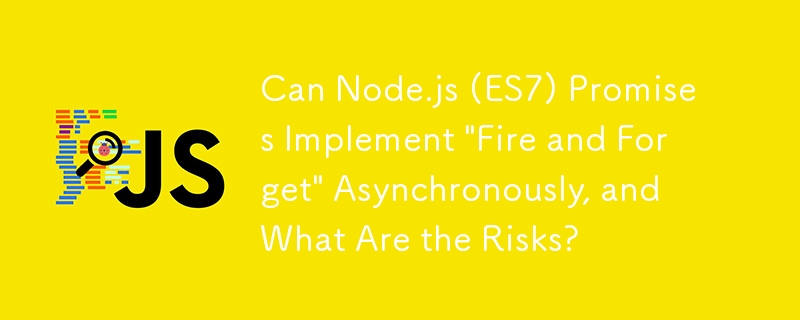

Fire and Forget Promises in Node.js (ES7)
In asynchronous programming, it's common to fork off tasks without waiting for their results. Can you do this with promises in Node.js (ES7)?
Question:
Consider the following code snippet:
redisClientAsync.delAsync('key');
return await someOtherAsyncFunction();Can you wrap the first line in an async function without awaiting it? What happens if you do?
Answer:
Yes, you can run the two asynchronous functions in parallel without awaiting the delAsync call. By creating and discarding the promise, you're effectively "firing and forgetting" it.
Why is this not ideal?
This approach has a significant drawback. If the delAsync promise is rejected, you won't be notified. This could lead to unhandled rejection errors and potential crashes.
Alternative Approaches:
Run functions in parallel: To execute the delAsync and someOtherAsyncFunction tasks concurrently, you can use Promise.all():
var [_, res] = await Promise.all([ someAsyncFunction(), // result is ignored, exceptions aren't someOtherAsyncFunction() ]); return res;
In this case, the result of delAsync is ignored, but exceptions are still thrown.
Conclusion:
While "fire and forget" can be convenient, it's essential to consider the potential consequences. By clearly defining your needs (waiting, result handling, and exception catching), you can ensure appropriate handling of asynchronous tasks in your Node.js applications.
The above is the detailed content of Can Node.js (ES7) Promises Implement \'Fire and Forget\' Asynchronously, and What Are the Risks?. For more information, please follow other related articles on the PHP Chinese website!




